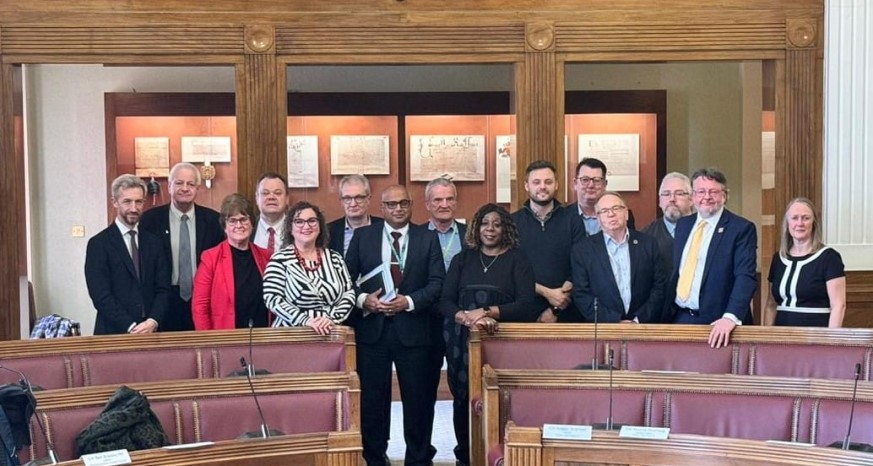The first meeting of the new East Midlands Combined County Authority (EMCCA) took place in Chesterfield last week – with council leaders making a series of decisions that establish the organisation’s constitution, budget and plans to improve the lives of everyone who lives and works in the region.
The EMCCA Board, made up of the four leaders and deputy leaders from Derbyshire, Derby, Nottinghamshire and Nottingham councils debated a number of key reports at their first meeting on 20 March at Chesterfield Borough Council.
They were joined by representatives from district and borough councils across the area, who will join the Board at the next meeting planned for after the mayoral election.
The meeting was chaired by Cllr Barry Lewis, Leader of Derbyshire County Council, who said: “Our shared ambition for our place and the people we serve has united us over the past few years and will continue to be the driving force behind all we do as EMCCA develops and grows.
“The £4 billion of government funding on the table for us through the devolution deal is just the start.
“We aim to attract more investment by making things happen and turning round historic under-investment in the East Midlands so the regional economy is stronger and better for local residents.”
The board meeting took place in Chesterfield ahead of elections for the region’s first Mayor, on Thursday 2 May. After the election future board meetings will be chaired by the Mayor.
Following the board meeting more than 100 partners and stakeholders joined political leaders in a launch event to hear more about EMCCA’s future plans.
The group discussed the strategic framework that focuses on the importance of growing the region’s economy for everyone’s benefit by targeting investment to speed up economic growth, improving transport links to towns, cities and major employers in the East Midlands and improving skills support and training in key sectors.
The launch event was supported by SCAPE, one of the UK’s leading public sector procurement authorities, which is wholly-owned by six local authority shareholders, including the four constituent councils involved in the EMCCA.
